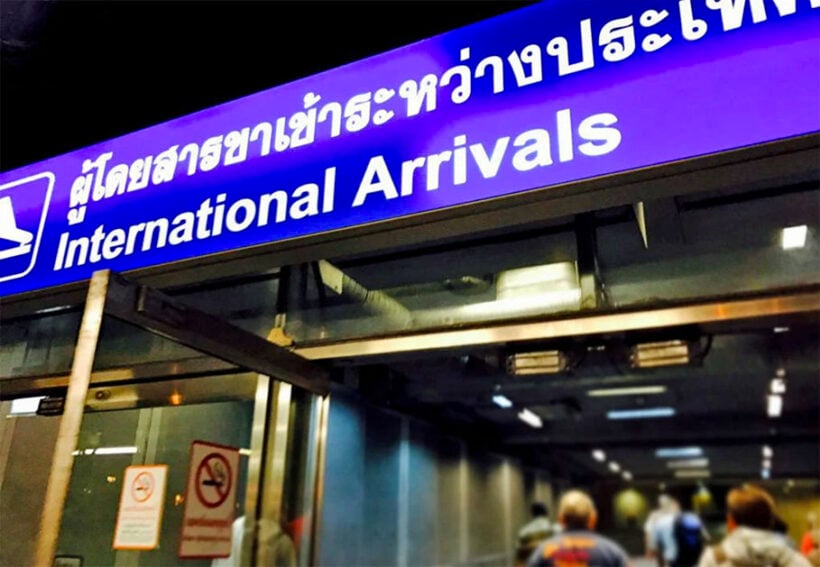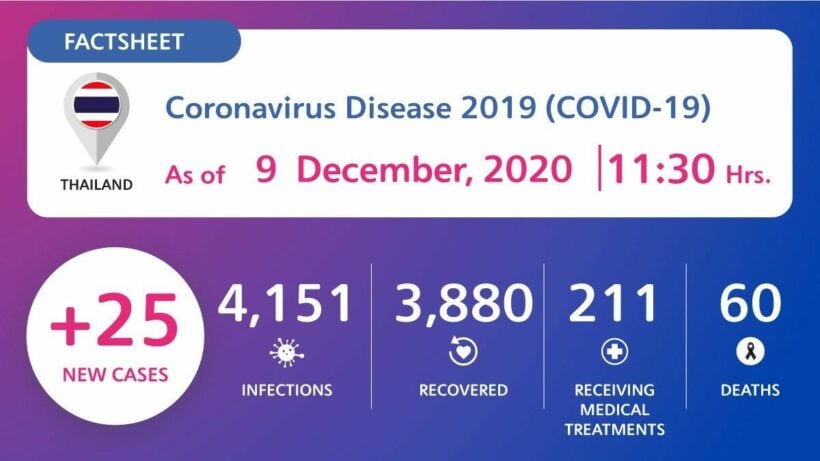25 new Covid-19 cases detected in quarantine including 7 returning from Myanmar

25 new Covid-19 cases were detected in quarantine including 7 Thai women who worked in entertainment venues in Myanmar, according to the Centre for Covid-19 Situation Administration. It’s the highest number of daily Covid-19 cases in Thailand since April 25, according to Worldometers.
Thailand’s total number of confirmed Covid-19 cases is raised to 4,151 with 3,880 recoveries and 60 deaths. 211 people are currently receiving medical treatment for the coronavirus.
- 7 Thai women, ages 25 to 35, tested positive for Covid-19 after returning from Myanmar where they had worked at entertainment venues.
- 2 Kuwaiti women, ages 31 and 77, tested positive for Covid-19. The elderly woman tested positive for the virus back in October.
- 6 people travelling from Switzerland tested positive for Covid-19 including a 53 year old Swiss man and 5 Thai women, ages 46 to 67.
- A 31 year old Russian diving instructor travelling from Russia tested positive for Covid-19.
- A 52 Thai woman travelling from Sweden tested positive for Covid-19.
- A 27 year old Thai man travelling from Singapore tested positive for Covid-19.
- A 32 year old Libyan woman and her 4 year old son travelling from Turkey tested positive for Covid-19.
- 2 Thai women, ages 59 and 18, travelling from the United States tested positive for Covid-19.
- 3 people travelling from South Korea, a 44 year old Korean man, 8 year old Korean boy and 43 year old Japanese woman, tested positive for Covid-19.

SOURCE: Nation Thailand
Catch up with the latest daily “Thailand News Today” here on The Thaiger.
Latest Thailand News
Follow The Thaiger on Google News:


























